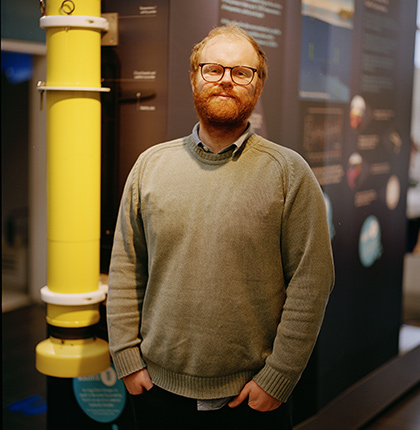Atlantic Climate and Environment Strategic Science
AtlantiS is a five year programme (2024 – 2029) that delivers the continuation and evolution of the UK’s strategic ocean observing and ocean prediction programme. The programme is led by the National Oceanography Centre and is a collaboration with Plymouth Marine Laboratory, The Scottish Association for Marine Science, and the Marine Biological Association. The programme builds and expands on the CLASS project. The AtlantiS programme aims to provide evidence, tools and knowledge to support the UK’s ambition for healthy, biologically diverse and resilient marine environments, a sustainable blue economy and communities safe from natural hazards.
Project Drivers
The global ocean is the largest part of the Earth's climate system and acts as a major buffer to climate changes resulting from human activities. By absorbing 90% of excess heat and nearly a quarter of carbon resulting from anthropogenic greenhouse gas emissions, the ocean has already substantially mitigated climate change in the atmosphere and on land. This service has come at a cost to the health and resilience of the ocean and by extension the people who depend on it.
Significant damage has been caused to biodiversity and productivity of marine ecosystems, to shelf seas and coastal environments, and to inland areas through extremes of weather. The futures of regional climate and ecological systems depend on the response of the ocean to multiple anthropogenic stressors. Understanding and predicting the response is fundamental for sustainable development and to guide adaptation and mitigation.
The challenge is that the ocean is so large and variable that it cannot be completely and fully observed. Achieving adequate knowledge on all scales requires international coordination of observing and modelling over decades. It requires advancement in technology to expand our ability to observe, and to expand the range of variables measured. This includes the continued development of mathematical computer models and new digital tools to help us manage and interpret increasingly large volumes of data.



